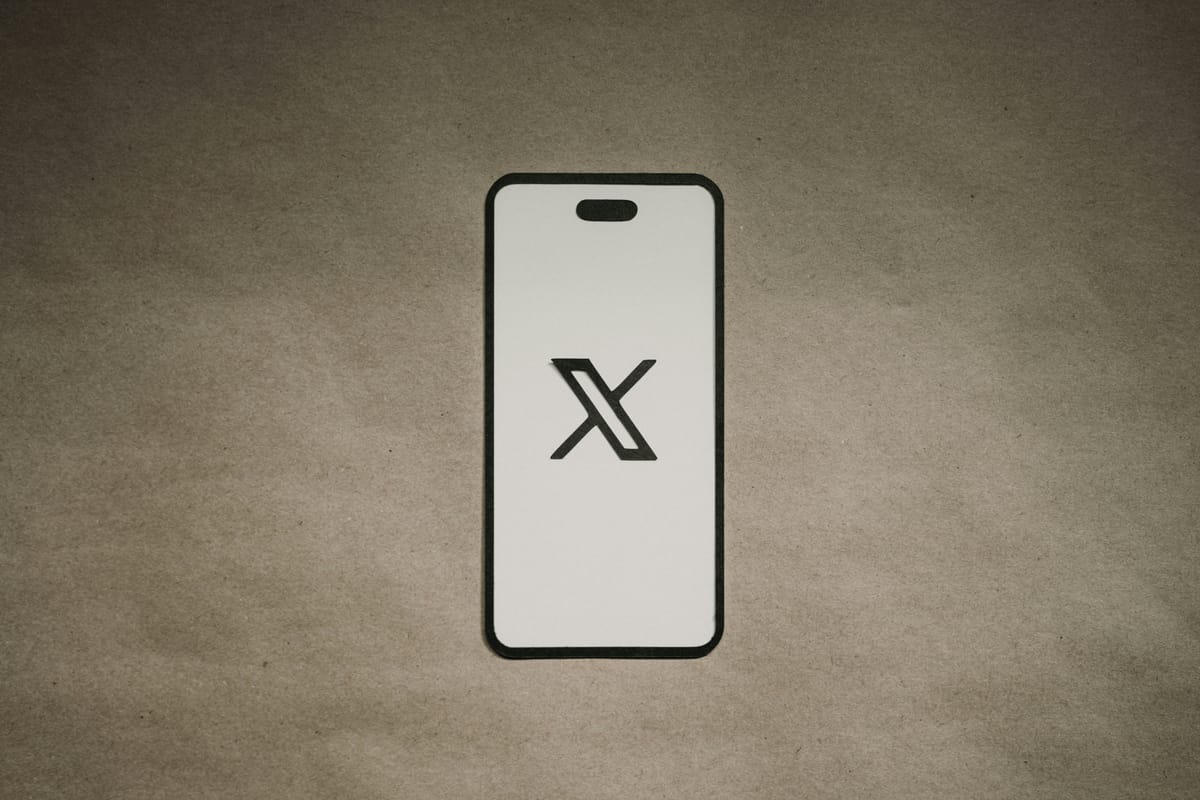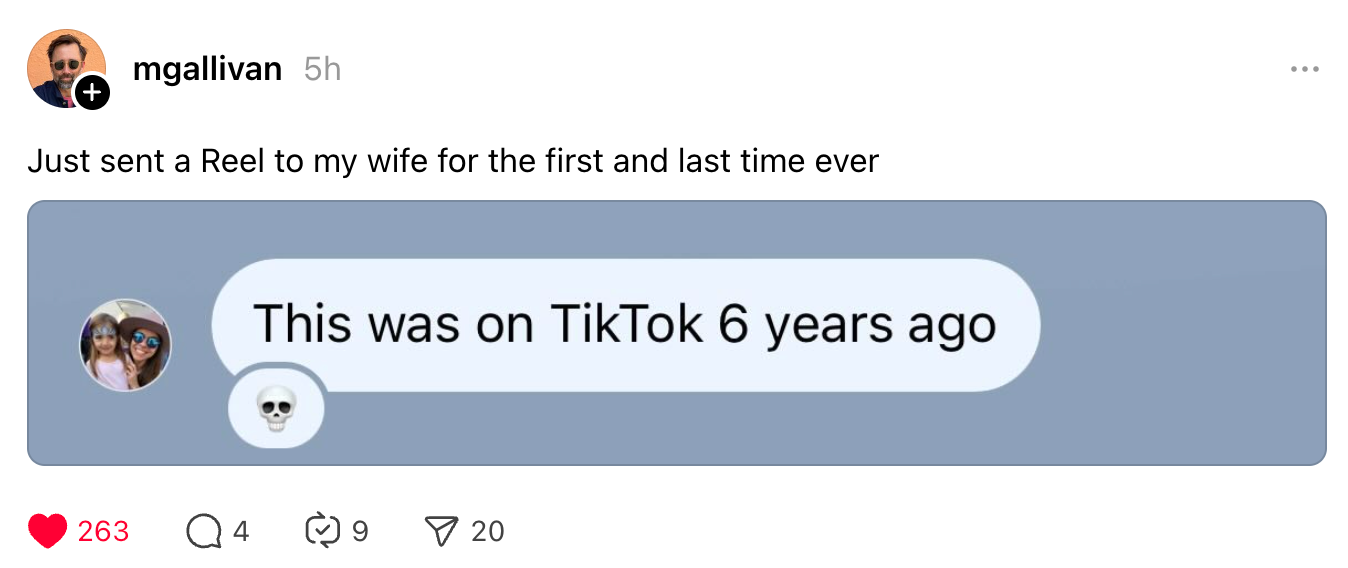X gets banned in Brazil
For once, Elon Musk has a case worth fighting — but he has to do it in the courts

Starlink, the satellite broadband company led by Elon Musk, said on Tuesday that it would comply with a court order and block access to X in Brazil. It marked yet another surprising twist in a wild saga that has been simmering all year but boiled over this weekend when a Brazilian judge single-handedly moved to ban X in the country.
Today let’s talk about how a personality clash between two powerful men led to tens of millions of Brazilians being prevented from accessing X — and how the move could be used to justify further restrictions on internet freedom around the world.
In April, I wrote here about how Musk had decided to risk a ban of X in Brazil over a court’s order that the platform ban a number of accounts belonging to right-wing users. Musk decided to restore the accounts in defiance of a powerful Supreme Court justice named Alexandre de Moraes, who subsequently opened an inquiry into the billionaire.
Musk, who has said he bought Twitter to turn the platform into a bulwark of free speech, positioned the move as a defense of liberty against an extremist government. Moraes, for his part, called Musk an “outlaw” whose X would “allow the massive spread of disinformation, hate speech and attacks on the democratic rule of law, violating the free choice of the electorate, by keeping voters away from real and accurate information.”
After Musk’s April outburst, X quickly reversed course, and said it would comply with the judge’s order. But the accounts that Moraes sought to terminate remained active, and last month X said he threatened to arrest a local employee for the platform’s failure to comply with his order. (The court wouldn’t comment, but threatening platform employees with jail time is an increasingly common and typically quite effective means of allowing government agents to moderate content as they see fit.)
Typically, threatening an employee with jail is all it takes to get a company to reverse course. Musk, on the other hand, said X would close its offices in Brazil.
On Friday, Moraes met that dramatic escalation with one of his own. Here are Jack Nicas and Kate Conger in the New York Times:
In a highly unusual move, Justice Moraes also said that any person in Brazil who tried to still use X via common privacy software called a virtual private network, or VPN, could be fined nearly $9,000 a day.
Justice Moraes also froze the finances of a second Musk business in Brazil, SpaceX's Starlink satellite-internet service, to try to collect $3 million in fines he has levied against X. Starlink — which has recently exploded in popularity in Brazil, with more than 250,000 customers — said that it planned to fight the order and would make its service free in Brazil if necessary.
Moreover, while he quickly reversed course, Moraes initially ordered Apple and Google to block X at the level of the app store in Brazil, as well as blocking VPN apps that let users circumvent geographic barriers to app usage.
While moves like these are common in authoritarian countries such as Russia or China, they are extraordinary to see in democracies, which typically place a higher value on free expression.
In any case, the fallout from Moraes’ ban was swift. Countless fan and meme pages went silent. Bluesky added 2 million users, and Threads saw some lift as well. (They are currently the No. 1 and 2 apps respectively in the Brazilian App Store, per Similarweb.)
And depending on how long the ban lasts, it will likely degrade even further the value of X, which a new analysis over the weekend found had lost an estimated $24 billion in value since Musk acquired Twitter in 2022.
What makes the story of Brazil and X such an unusual tech policy story is the way it has been driven almost entirely by two people.
On one side is Musk, who has often claimed the mantle of free speech warrior in public while capitulating to government requests in private. One analysis last year found that under Musk, X had given into 83 percent of requests from authoritarian governments to remove content. And he appears more willing to accede to the requests of right-wing governments, such as India’s.
In 2021, it seemed possible that India would be the first democracy to ban Twitter, after the company fought court orders to remove political dissent — including from left-wing opponents to the government of Narendra Modi. But relations have warmed between Musk and the Modi government since he stopped fighting those battles.
“The rules in India for what can appear on social media are quite strict, and we can’t go beyond the laws of a country,” Musk told the BBC last year. “If we have a choice of either our people go to prison or we comply with the laws, we will comply with the laws.” At another point in the interview, Musk said: “If people of a given country are against a certain type of speech, they should talk to their elected representatives and pass a law to prevent it.”
Brazil once again gave Musk the choice of sending an employee to prison or complying with its laws. This time, he chose not to comply.
Musk’s defiance likely would have sparked a backlash in most countries where X operates. But he has found a particularly pugnacious opponent in Moraes, a hugely powerful and controversial figure within Brazilian politics who came to prominence during the tenure of former president Jair Bolsonaro. Bolsonaro, a Trump-like figure who threatened to undermine Brazil’s democracy, lost the 2022 election and left office after a violent riot at the capitol by his supporters last year.
Both during and since Bolsonaro’s presidency, Moraes has used the unusual powers of his office to order people arrested over their social media posts, account bans on the platforms where they posted, and even temporarily removing a governor from office. At X, he has sought the removal of at least 140 accounts, the Times reported, and often delivers his orders in sealed documents that do not specify any rationale for his decision.
Moraes is not the first government agent to make overbroad legal requests of a tech platform. Google, Meta, and other companies receive thousands of requests like these every year, and disclose them in aggregate in annual transparency reports. The reason they publish those reports is to serve as a check on governments that seek to abuse their power by seeking information from platforms for surveillance and other potentially problematic uses.
Crucially, Google and Meta also fight against overbroad requests in court. Sometimes, they win. The result is a kind of dance between platforms and governments that leaves everyone at least somewhat disappointed but is also the reason that so many people around the world can speak freely online.
I don’t post on X any more myself, and I will not lament its passing when it disappears. But whatever role the 140 X accounts in question in Brazil may have played in threatening Brazil’s democracy, they cannot have threatened it more than silencing the 20 million or so Brazilians who have been using it regularly. Particularly when Brazil’s move will be seen by autocracies as justification to enact ever more onerous speech restrictions of their own.
Like Pavel Durov before him, Musk appears to have thought he could escape the reach of regulators indefinitely. This weekend, he began to learn the same lesson Durov has: you can’t outrun the legal system forever. Had Musk fought for his users in court earlier, he might have avoided a ban. Instead, as he has before in so many other things, Musk chose to do it the hard way.
Elsewhere in Musk:
- Musk reposted a 4chan argument that said only "high T alpha males" and "aneurotypical people" are capable of critical thinking. (Ellsworth Toohey / Boing Boing)
- Elon Musk and Tesla won a dismissal of a lawsuit that alleged he promoted Dogecoin to pump up the price in a “pyramid scheme.” The judge said Musk’s statements were merely “aspirational.” (Rachel Graf / Bloomberg)

Governing
- The Justice Department will not pressure social media companies to remove or block content when it shares information about threats, it said, following claims it previously tried to coerce companies. (Chris Strohm / Bloomberg)
- Google is adding safeguards to more of its AI products ahead of the US elections, which means its products will not respond to election-related topics. (Aisha Malik / TechCrunch)
- A look at the problem of AI-generated child sexual abuse material and what can be done about it. (David Evan Harris and Dave Willner / IEEE Spectrum)
- LAION, whose popular AI training data set contained thousands of images of CSAM, says it cleaned up the data. (Kyle Wiggers / TechCrunch)
- As state legislators consider child safety bills, Apple continues to push back on its responsibility to enforce age restrictions. (Jeff Horwitz and Aaron Tilley / Wall Street Journal)
- A federal judge partially blocked a Texas law that would have required large web services to identify minors and filter what they see, ruling that the requirement could pose a threat to online speech. (Adi Robertson / The Verge)
- Telegram founder Pavel Durov’s arrest is not a matter of free speech, this author argues, and more about the platform’s complicity in criminal activity. (Renee DiResta / The UnPopulist)
- A look at the importance of crypto in Telegram’s bottom line. (Robert Smith and Hannah Murphy / Financial Times)
- Telegram complied with a South Korean regulator’s request to remove nonconsensual deepfake porn on its platform and apologized, the regulator said. (Kim Na-young / Yonhap News Agency)
- An inside look at the deepfake porn crisis in South Korean schools. (Jean Mackenzie and Leehyun Choi / BBC)
- Kamala Harris’ ties to Big Tech companies could make for friendlier treatment, critics worry, as her speech at the DNC signaled an embrace of AI. (Cristiano Lima-Strong and Cat Zakrzewski / Washington Post)
- Left-wing conspiracies have grown over the last few weeks, and misinformation researchers are worried it could further polarize discourse leading up to the elections. (Stuart A. Thompson and Tiffany Hsu / New York Times)
- German tech players are speaking out against the country's far-right party ahead of elections over concerns that its anti-immigration stance could hurt the industry. (J.D. Capelouto / Semafor)
- The Dutch Data Protection Authority fined facial recognition company Clearview AI $33.7 million, alleging that it created an illegal database with unique biometric data. (Lauren Feiner / The Verge)
- A North Korean hacking group exploited a bug in Chrome-based browsers in an attempt to steal crypto. Google has since patched the bug. (Lorenzo Franceschi-Bicchierai / TechCrunch)
- The organization behind the National Novel Writing Month is facing backlash after defending the use of AI tools and calling those who oppose it “classist and ableist.” (Jess Weatherbed / The Verge)

Industry
- OpenAI is reportedly considering restructuring itself to become friendlier to investors amid talks of a new funding round. It feels inevitable at this point. (George Hammond and Madhumita Murgia / Financial Times)
- Transitions in the company have reportedly been difficult as divisions arise driven by competing priorities and rapid growth. (Cade Metz and Mike Isaac / New York Times)
- Sam Altman’s massive infrastructure plan for AI will reportedly cost tens of billions of dollars. (Shirin Ghaffary and Mackenzie Hawkins / Bloomberg)
- Philippe Laffont, founder of Coatue Management, left ByteDance’s board. (Jing Yang and Juro Osawa / The Information)
- ByteDance is reportedly seeking a $9.5 billion loan, which would be the biggest dollar-denominated one in Asia excluding Japan. (Chien Mi Wong / Bloomberg)
- xAI debuted a new supercomputer, “Colossus,” which Musk described as the most powerful AI training system in the world. Can it get X unbanned in Brazil? (Christiaan Hetzner / Fortune)
- Meta AI now has more than 185 million weekly active users, Mark Zuckerberg said. (Kalley Huang / The Information)
- Instagram now lets users comment on stories. (Lauren Forristal / TechCrunch)
- Android Gmail users can now chat with the Gemini chatbot directly in the Gmail app. (Maxwell Zeff / TechCrunch)
- Google’s AI Overviews now appear in 17 percent of queries in the UK and US and are significantly impacting visibility for publishers, new research suggests. (Dominic Ponsford / Press Gazette)
- What some news audience directors think of AI Overviews. (Andrew Deck / NiemanLab)
- YouTube creators, including hosts of popular shows like Hot Ones and Chicken Shop Date, are eating up more TV viewing time, and they want recognition at awards shows, they say. (Isabella Simonetti and Sara Ashley O’Brien / Wall Street Journal)
- Amazon’s revamped Alexa will be reportedly primarily powered by Anthropic’s Claude AI models. Amazon wishes it could buy Anthropic so bad. (Greg Bensinger / Reuters)
- Amazon is hiring three founders of AI robotics startup Covariant and a non-exclusive license to Covariant’s AI models as part of the agreement. (Taylor Soper and Todd Bishop / GeekWire)
- Dating apps like Tinder, Hinge, Bumble and Grindr are now looking to create AI “wingmen” to help generate better chat lines. (Stephanie Stacey / Financial Times)
- Sub.club, which lets Mastodon creators make money through premium feeds, could be an important building block for the open social web, its co-founder says. Very interested in this one. (Jay Peters / The Verge)
- A look at the ways AI chatbots can still be manipulated to make them like you more. (Kevin Roose / New York Times)
- Despite a 48 percent drop in stock this year, Snap CEO Evan Spiegel tried to rally employees in a letter outlining its efforts in AR and its pace towards record annual revenue. Everyone get excited for ... ads in your snaps! (Aisha Counts / Bloomberg)
- Niche apps like running app Strava and film review app Letterboxd are seeing a surge in users as more people turn to affinity-based platforms. (Teresa Xie / Bloomberg)
- A look at how AI could help discover new drugs in healthcare, especially in identifying new antibiotics to combat antibiotic resistance. (Dhruv Khullar / New Yorker)
- Google is teaming up with an Indian AI startup to use AI to help detect signs of tuberculosis and improve diagnoses. (Saritha Rai / Bloomberg)
- Generative AI lacks the ability to be artistic and creative because of the limitations it has on choices, this author argues. (Ted Chiang / New Yorker)

Those good posts
For more good posts every day, follow Casey’s Instagram stories.

(Link)

(Link)

(Link)

Talk to us
Send us tips, comments, questions, and illicit Brazilian tweets: casey@platformer.news.





